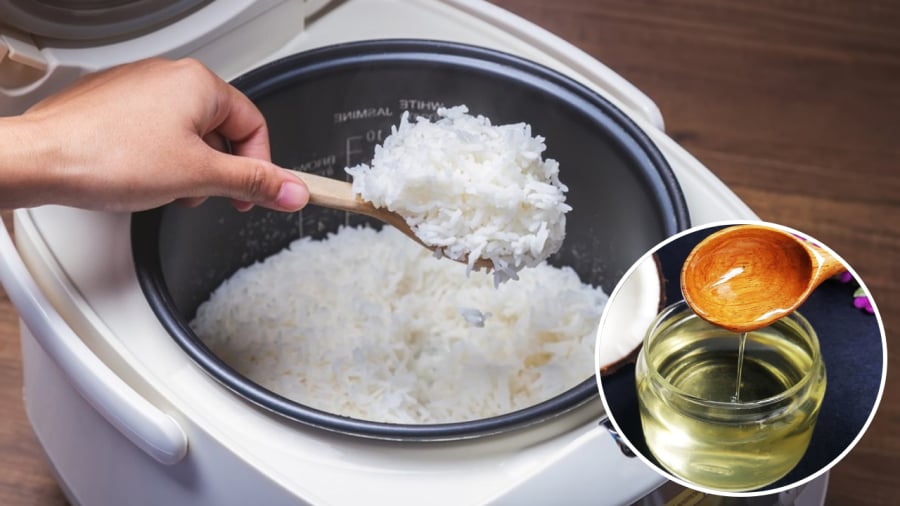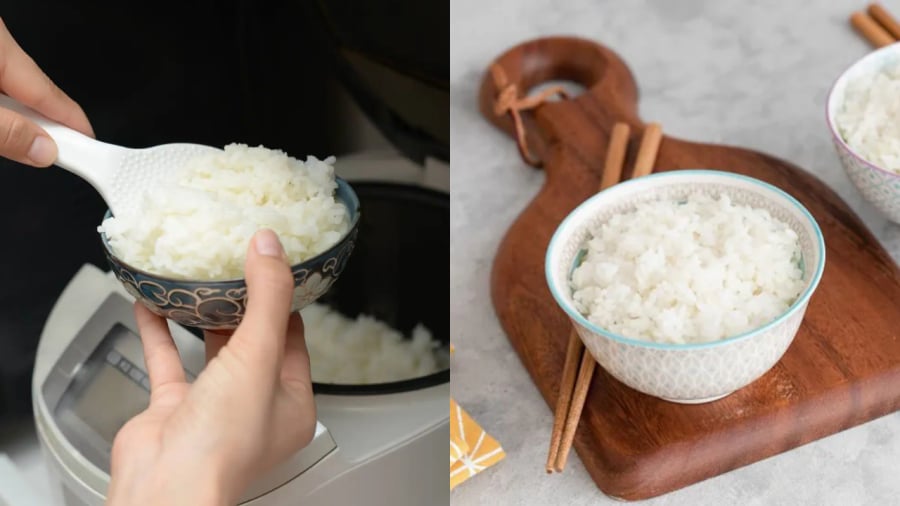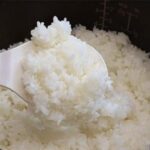White rice is an indispensable part of the diet in many East Asian countries, including Vietnam. It provides a substantial amount of carbs and calories to fuel human activities. However, consuming too much white rice can lead to weight gain. More and more people are reducing their intake of white rice or even avoiding it altogether during main meals. Completely eliminating white rice from your diet is unnecessary. Rice still provides essential nutrients, especially starch. The absence of starch can lead to a significant energy deficit, impacting the brain’s functionality.
Instead of completely cutting out white rice, it’s crucial to practice moderation and adopt a healthier dietary approach.
Cooking rice with coconut oil is believed to reduce the carb and calorie content of white rice while offering several health benefits.
How to Cook Rice with Coconut Oil
The amount of rice you use depends on your needs. Rinse the rice two times to remove any dirt or debris. There’s no need to scrub the rice vigorously as this can remove some of the outer nutrients. Place the rice in a pot, add a tablespoon of coconut oil, pour in boiling water, and start cooking.
Once the rice is cooked, fluff it with a fork and transfer it to a container. Cover the container tightly and store it in the refrigerator. Rice can be stored in the fridge for 10-12 hours. Finally, take it out, reheat it, and enjoy your meal.

Cooking rice with coconut oil not only enhances its flavor but also provides health benefits.
Why Add a Spoonful of Coconut Oil When Cooking Rice?
Weight Loss Support: Cooking rice with coconut oil and storing it in the fridge before consumption alters the chemical composition of the rice. This process can reduce the calorie content by 10%-50%, depending on the type of rice used.
Prevents Blood Sugar Spike: Coconut oil is considered a healthy fat. White rice consumption can lead to a post-meal blood sugar spike. Incorporating coconut oil in the cooking process helps mitigate the impact of rice on blood sugar levels.
Resistant Starch Formation: Cooking rice with coconut oil and storing it in the fridge before eating converts digestible starch in the rice into resistant starch. This type of starch takes longer to break down, preventing fat accumulation in the body.
Promotes Gut Health: Rice cooked with coconut oil can act as a prebiotic. Both prebiotics and probiotics are beneficial for gut health and immune system strengthening.
Additional Tips for Cooking Rice

There are several tips and tricks to enhance the flavor and texture of cooked rice.
Add White Vinegar: When cooking rice, you can add a small amount of white vinegar. Vinegar helps make the rice grains more sticky and retains their natural color. It also adds a subtle sweetness and prolongs the shelf life of the cooked rice. For every kilogram of rice, mix in about 2ml of vinegar.
Salt to Taste: Adding a pinch of salt to the rice while cooking can enhance the flavor and prevent spoilage.
For leftover rice from the previous day, mix in a small amount of diluted salt water before steaming. This will eliminate any odd smells and make the rice taste as good as freshly cooked.
Sesame Oil for Aroma and Shine: Before cooking the rice, you can mix in a small amount of sesame oil. This adds a glossy shine to the rice grains and enhances their aroma.





































